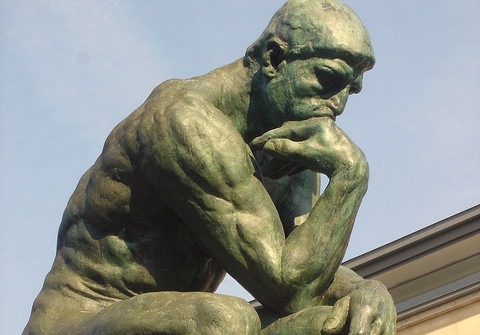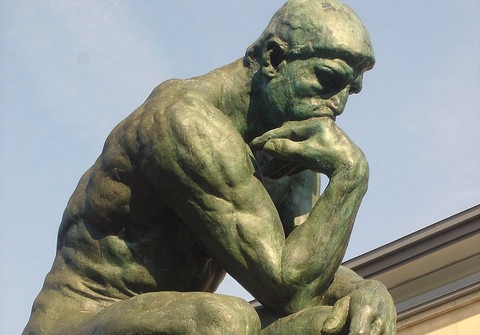 Jack Handey has nothing on his deep thoughts.Photo: Satyakam KhadikarA few months ago, in a post about the larger significance of the right’s climate denialism, I said this: “Here we are hip-deep in postmodernism and it came from the right, not the left academics they hate.” In a New York Times Magazine piece last weekend, Judith Warner argued something similar: that the right’s denialism is a dangerous extension of the left’s academic postmodernism of the ’80s and ’90s.
Jack Handey has nothing on his deep thoughts.Photo: Satyakam KhadikarA few months ago, in a post about the larger significance of the right’s climate denialism, I said this: “Here we are hip-deep in postmodernism and it came from the right, not the left academics they hate.” In a New York Times Magazine piece last weekend, Judith Warner argued something similar: that the right’s denialism is a dangerous extension of the left’s academic postmodernism of the ’80s and ’90s.
Science journalist Chris Mooney disagrees. He argues that “climate change deniers do not look, behave, or sound postmodern in any meaningful sense of the term.”
It’s possible there there are fewer than a dozen people on the planet who care about this largely semantic dispute, but I find it fascinating. I think both Warner and Mooney are right, but in different ways. I’ll try to explain why without getting too nerdy.
What is a “postmodernist”? One definition is simple: someone who subscribes to the academic theory of that name. There’s significant and important variation among postmodernists, of course, but in one way or another, they all argue that knowledge is socially constructed. Science, they say, is just another social practice or “discourse,” not a privileged way of accessing Reality. Postmodernism, at least in its Derridian form, is an extreme form of relativism, which says that truth (empirical, moral, or both) is not fixed, eternal, and objective, but inextricably culture-bound and subjective.
Now, in that sense, no, obviously most climate skeptics are not postmodernists. Most people who haven’t been corrupted by academic philosophy or hallucinogenic drugs aren’t. Most are what philosophy snobs call “naive realists” — in fact, most people probably don’t think about empirical or metaphysical theories at all!
But I don’t think that’s the whole story.
Let’s distinguish between what I would call intellectual postmodernists and practicing postmodernists. The former believe that all knowledge is relative to culture; the latter behave as though all knowledge is relative to culture. Those manifest quite differently.
The right — not just on climate but on matters ranging from evolution to Obama’s birth certificate — rejects, in practice, the notion that there are empirical standards or practices of inquiry that transcend ideology, tribe, or personality. That’s why they are so aggressive with charges of “bias.” What they mean by that is that mainstream scientific, academic, and media institutions, while falsely claiming to be objective or nonideological, are in fact of the liberal tribe.
Mooney asks:
[M]any of these dissenting “skeptic” scientists of course have agendas of their own, rivalries with scientists in the “mainstream,” and so on. What on earth makes them so trustworthy, so objective?
That’s the wrong question. Conservatives do not go to these scientists because they think they are “more objective.” They go to them because they affirm conservative beliefs. They are the scientists of their tribe. They are, as Mooney writes, “their scientists.” The left gets their scientists, the right gets theirs. The left gets their experts, the right gets theirs. The left gets its news, the right gets theirs. The left gets their reality, the right gets theirs.
Obviously if you ask a Tea Partier if the non-existence of climate change is “objectively true,” he’ll say yes. He will use the language of disinterested inquiry and evidence, of objective truth, because in this particular political struggle that language confers advantage. But make no mistake, for him, denying climate change is what John Austin called an “illocutionary act” — it’s a reaffirmation of his affiliation with and loyalty to his tribe. In asserting the right’s shibboleths, he is expressing his identity.
Anyway, this is what postmodernism looks like. In practice, postmodernism doesn’t mean a bunch of academics in berets giving lectures on postmodernism. In practice, it means competing tribes, each with their own authorities and facts, each with their own reality, settling their differences the only way differences can be settled in the absence of universal standards of evidence and reason — through brute propaganda and, eventually, violence. When I look over the horizon, it looks pretty postmodern to me.




